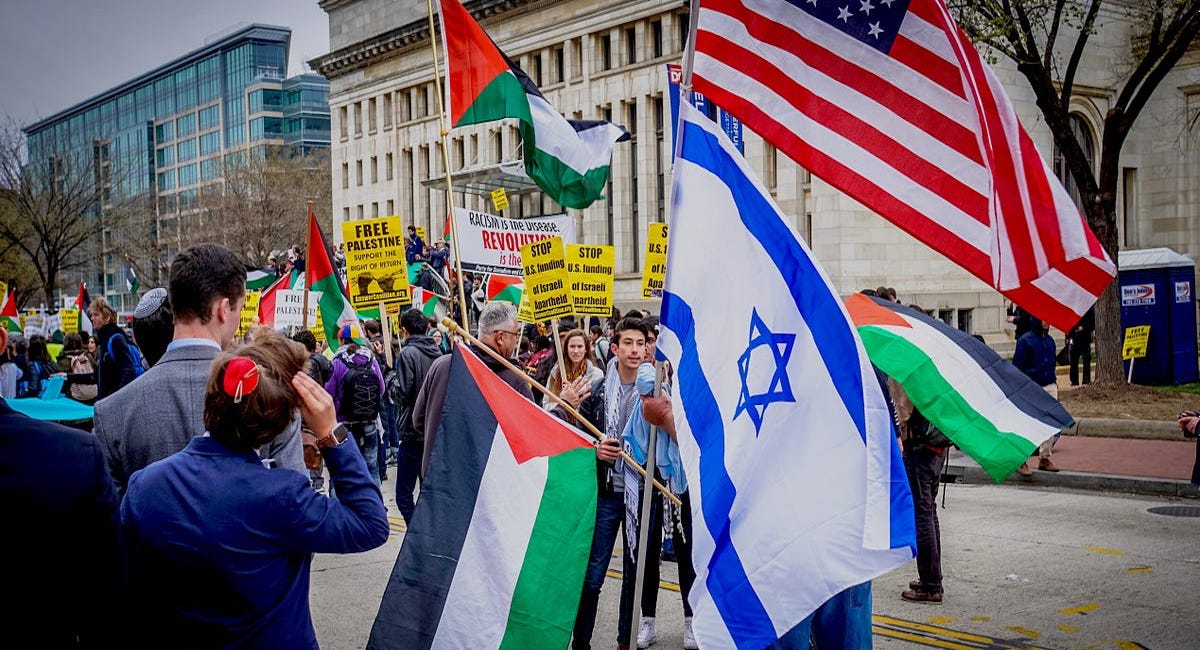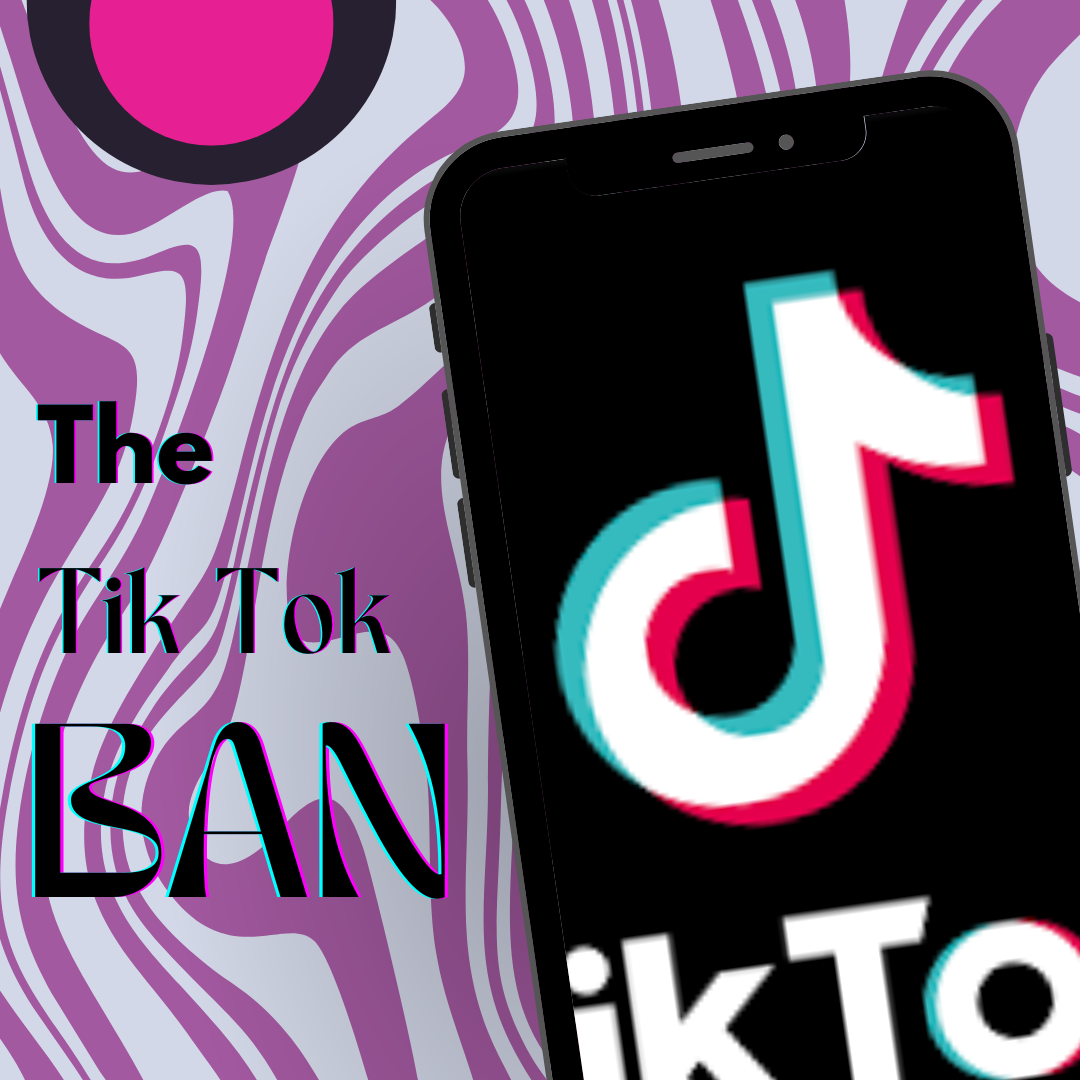Whenever you open the news, it’s inevitable that you’ve seen something regarding the Israel-Palestine conflict. There are new stories and information coming out daily.
“I try to read what I can, but I don’t really have time to catch up on everything,” said senior El Jack-Carlon.
For many teenagers and adults as well, it can seem like a daunting task to try and understand everything that is happening and has been happening for the past 76 years.
In the 19th and 20th centuries, many Jewish immigrants were arriving in Palestine. Tensions were seen from the beginning with the growing Zionist movement. Zionism is the movement for the creation of a Jewish nation. In 1917, Britain released the Balfour Declaration, which simply was them stating their support of the creation of the Jewish homeland in Palestine. At this time, Palestine was under the control of the Ottoman Empire, but they quickly conceded following the end of World War 1.
With Britain’s promise and the persecution of Jewish people during the Holocaust, it led to thousands of Jewish immigrants migrating to Palestine during this time.
Tension was strong from the start, and there were quickly hundreds of deaths from the Palestinian Arabs and the Jewish migrants.
In 1947, the United Nations (UN) proposed splitting the area into two independent states, one Arab State and one Jewish State. Palestinians opposed this idea and without a resolution Israel declared itself independent on May 15, 1948.
This began the Israeli-Arab War, with five different Arab states fighting against the creation of Israel. During this time, more than 700,000 Palestinian Arabs fled or were expelled from their homes. With support from foreign countries, Israel won the war, and the area was divided into three: Israel, the West Bank and the Gaza Strip. The West Bank and the Gaza Strip were left in control of Egypt and Jordan.
In 1967, the Six-Day War began between Egypt and Israel. As the name suggests, the war took only six days and ended with Israel gaining control of all Palestinian Arab territories. While the war was short, around 300,000 Palestinians became refugees.
In December of 1987, an Israeli vehicle hit two vans killing four Palestinian workers. Many Palestinians took this as an act of revenge or a punishment for an Israeli man who was stabbed in Gaza only days prior.
Because of this, the Intifada began. Intifada means uprising in Arabic, and an uprising is exactly what happened. The rebellion spread through the Arab state and aimed to end the occupation of Israel in those territories. Six years later, the Israel Prime-Minister, Yitzhak Rabin, and leader of the Palestine Liberation Organization (PLO), Yasir Arafat, signed the Oslo accords. This declared the PLO as the representative of the Palestinian people and that Israel had the right to exist in peace.
Another Intifada began in 2000, but this time it led to the Palestinian people’s control of the West Bank and Gaza.
However, the following year, Hamas won an election, and they took control away from the PLO. Hamas issued an armed takeover of Gaza, which led to Israel and Egypt blockading the area around the Gaza Strip. Hamas formed from the Muslim Brotherhood’s Palestinian branch, but currently many countries designate Hamas a terrorist organization.
The blockades restricted the people and the goods that could enter and leave the area. The conditions the Palestinians were living was also a concern for the United Nations Relief and Works Agency (UNRWA) and many other organizations.
The European Commission has given over $1 billion in funding and aid to the Palestinians. The UN states that 81% of the population of Gaza lives in poverty, 63% have food insecurity and a 47% unemployment rate.
In the following years Israel engaged in multiple military operations against Hamas and other possible terrorist organizations in the Gaza Strip.
In September of 2023, Israeli settlers attacked Palestinian people and homes over 800 times, killing around 247 people.
On Oct. 7, 2023, Hamas attacked Israel. They had gunmen go across the border, and they fired thousands of rockets, killing around 1,200 people. Additionally, Hamas is believed to have taken around 240 hostages. Prime Minister Bejamin Netanyahu of Israel quickly came out that Israel is “at war”. They proceeded with bombing and a total siege of the Gaza Strip. By the middle of December, Israel had dropped 29,000 bombs, destroying around 70% of Gaza’s homes and buildings.
President Joseph Biden released a statement in response to the attack saying, “And while it may not feel that way, Israel must again be a safe place for the Jewish people. And I promise you, we’re going to do everything in our power to make sure that it will be.”
In Gaza, 28,663 Palestinians have died since Oct. 7, with 40% of them being children. Gaza was also blocked access from fuel, water, electricity, food and medical supplies by Israel.
The United States and many European allies spoke out against Hamas’ attack and took solidarity with Israel. Many politicians and leaders have spoken out against Israel’s right to defend itself. With the U.S. giving Israel $3.8 billion in 2023.
Countries such as Iran, Syria and Lebanon state that Israel provoked the violence and claims Hamas’ attacks were an appropriate response. On the opposing hand, the Dominican Republic voted to condemn Hamas at the UN.
Arab nations that border Gaza are reluctant in taking in Palestinian refugees.
President Abdel Fattah el-Sisi of Egypt stated, “[The war] an attempt to push the civilian inhabitants to migrate to Egypt.” He worries that this will eliminate Palestinians’ want for statehood, if a permanent expulsion were to occur.
He’s also made multiple statements claiming that Israel’s attacks no longer fall under self-defense.
“This is a form of pressure on the Gaza Strip and its people over the conflict and the release of hostages. They are using this as a pressure tool on the people of the Strip,” he explained.
Currently, Hamas stated that talks of cease-fire and hostage release will resume the week of March 11, 2024. Egyptian officials said they were unable to negotiate out a deal before the start of Ramadan as originally hoped.
Hamas spokesperson, Jihad Taha, said, “[Israel] refused to commit to and give guarantees regarding the cease-fire, the return of the displaced, and withdrawal from the areas of its incursion.” Israel has yet to make a comment regarding the negotiations.
An estimated 100 Israeli hostages have yet to be rescued or released from Hamas. People in Gaza are still cut off from humanitarian supplies and the necessities of living. In the past. Between Oct. 7, 2023, and March 6, 2024, 30,717 Palestinians have been killed in Gaza and 1,200 in Israel.
Death and violence plague this area, and until the negotiations between Hamas and Israel occur, it will likely continue. No matter what your opinion, you can help the victims of the crisis: donating to global relief agencies, pushing for a cease-fire, and staying informed about the situation.















